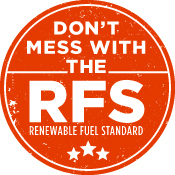![]() Syngenta is partnering up with Iowa FFA chapters to support ethanol. This company news release says the developer of the corn ethanol feedstock Enogen will be at the American Ethanol 200 with the FFA members to raise money and awareness for flex fuels – and the farm group.
Syngenta is partnering up with Iowa FFA chapters to support ethanol. This company news release says the developer of the corn ethanol feedstock Enogen will be at the American Ethanol 200 with the FFA members to raise money and awareness for flex fuels – and the farm group.
The American Ethanol 200 is a 200-lap NASCAR Camping World Truck Series race honoring American-grown ethanol and presented for the third consecutive year by Enogen® corn enzyme technology. Money raised for flex fuel infrastructure by FFA members at the Iowa Speedway on race day will be matched by Syngenta, with a portion of the proceeds going to participating FFA chapters.
“Engaging the public about ethanol and renewable fuels is a good opportunity for my students,” said Miranda Johnson, advisor of the Twin Cedars FFA Chapter. “They are the future and they understand the importance of conservation and preservation of our land and resources – and the vital role farmers play in feeding and fueling our country.”
According to Jack Bernens, head of Enogen at Syngenta, the ethanol industry since its inception has had a profoundly positive impact on the U.S. economy and on rural America.
“Ethanol has enlarged and strengthened the market for American-grown corn, adding jobs in rural communities and spurring the innovation of new technologies,” he said. “Syngenta is pleased to again be partnering with local FFA chapters at the American Ethanol 200 presented by Enogen to help spread the word about the importance of American ethanol and the need for increased flex fuel infrastructure. It’s inspiring to see FFA members embracing renewable fuels and helping to tell its story.”
Bernens added that investments in flex fuel pump infrastructure are necessary to help grow the market for American ethanol.










